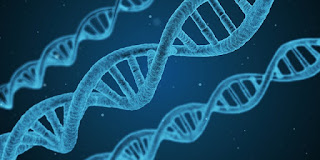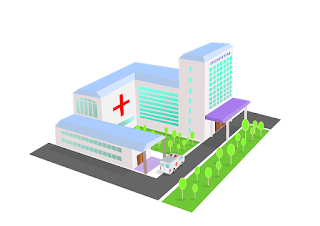Why Does Society Need Non-Clinical Doctors?
Society needs non-clinical MBBS/MD doctors! It needs them more than ever!
Why do I say so? There are five main reasons. In this article, you will find the five reasons supporting the indispensable need for non-clinical doctors in modern societies.
First and foremost, though they are conclusive, clinical trials and studies are only the last steps of biomedical research. The bulk of initial biomedical research happens outside the clinic.
Why do I say so? There are five main reasons. In this article, you will find the five reasons supporting the indispensable need for non-clinical doctors in modern societies.
1. Non-Clinical Doctors Account For Early Drug Development
First and foremost, though they are conclusive, clinical trials and studies are only the last steps of biomedical research. The bulk of initial biomedical research happens outside the clinic.
 |
| Image by Michal Jarmoluk from Pixabay |
The current specialization age doesn't encourage a clinician to step out of the professional boundaries and indulge in pre-clinical research.
The more medical care and technology advances, the more sophisticated it becomes. Clinicians who are busy with the medical practice part find it increasingly difficult to take responsibility for non-clinical scientific research and development of newer products which is a full-time non-clinical job. But for non-clinical doctors, there would not be as many new drugs, vaccines, and medical devices, and other health products.
2. Non-Clinical Doctors Advance Medical Knowledge
Secondly, the medical world's limited understanding of the human body, diseases, and its interaction with the environment is another important factor.
 |
| Image by Arek Socha from Pixabay |
Our understanding of the microscopic structure and functioning of the human body is not yet 100%. The study of inter-human differences in response to treatments is inadequate. A lot about it needs to be studied by non-clinical doctors to develop effective personalized treatments with minimal adverse effects.
Our understanding of foods and their effects on health is also very rudimentary. Microbes have multiple relationships with the human body and health and most of them still need to be elicited and refined. Chemicals and pollutants influence multiple diseases and play an important role in cancers but very little about these is known with certainty. Non-clinical doctors help to increase and update this crucial knowledge base which forms the core of diagnosis and treatment processes.
3. Non-Clinical Doctors Prepare Doctors of the Future
Thirdly, we need a constant supply of new doctors who need to first understand the human body, diseases, and the environment much before they can begin learning about the treatment aspects.
 |
| Image by Yerson Retamal from Pixabay |
Non-clinical studies form the basic sciences component of medical studies and a medical student at least spends three full years learning these things before progressing to the treatment part.
Without non-clinical doctors, the medical schools/colleges would have to shut their shops, as it is impossible for clinicians to take this responsibility along with teaching clinical medicine and patient care.
4. Non-Clinical Doctors Manage Healthcare Systems
Fourthly, non-clinical doctors are essential to effectively and efficiently administer hospitals, laboratories, blood banks, health programs, and regulatory offices. They are also a must for investigating and responding to epidemics and outbreaks.
 |
| Image by Pintera Studio from Pixabay |
If these institutional structures are not in order, all the doctors and medicines will become useless.
To keep these institutions in order is a huge task that requires specialized training in public health or management. Full-time clinicians would often fail to produce desired outcomes in these activities.
5. Non-Clinical Doctors Advance Evidence-Based Medicine
Finally, days of just clinical medicine are no more, and evidence-based medicine has completely taken over modern medicine. |
| Image Credit: Pixabay |
Clinicians for various reasons need to back their decisions with evidence. The evidence is usually in the form of a lab report or an imaging technique. Generating this evidence requires sophisticated equipment and personnel. Clinicians cannot take up this job for above said practical reasons. Moreover, the advancement of lab medicine and radiology needs specialized doctors.
Do you agree that society needs non-clinical doctors? Feel free to share your views.
Views expressed are personal
Author Profile
Dr. Naval Asija is a New Delhi-based non-clinical doctor having health administration postgraduate training. Since 2018, he has been writing/blogging full-time on health issues. In the past, he has worked for a decade in healthcare, in different organizations, namely Innodata India Pvt. Ltd.,
Win-Medicare Pvt. Ltd., National Institute of Health and Family Welfare,
Integrated Disease Surveillance Project, and National Polio Surveillance
Project. The author can be contacted through https://www.linkedin.com/in/navalasija/
Disclaimer
By using our website, we imply that you agree to its terms of use and privacy policy. For full details, you can refer to these documents by
clicking the links: Privacy Policy and Terms of Use

Very interesting blog, Information is very valuable.thanks for sharing !!
ReplyDelete